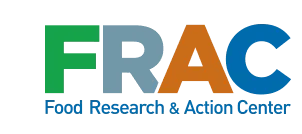
- This event has passed.
The Policy, Economics, and Science Behind Offshore Fish Farming: OFF 201
May 24, 2023 @ 12:00 pm – 1:00 pm PDT
Co-hosted with GRACE Communications Foundation and Don’t Cage Our Oceans
Offshore Fish Farming (OFF) – the mass cultivation of finfish in underwater or floating net pens, pods, and cages – raises critical concerns about climate change, government funding, corporate consolidation, and sustainable seafood. In this second of the two-part session, participants will delve deeper into the issues.
Offshore fish farming has been subsidized through taxpayers money and continues to be funded through different agencies, from the National Oceanic and Atmospheric Administration to the US Department of Agriculture. The strong lobbying arm of Stronger America Through Seafood is quick to insert earmarks in various bills before Congress, including the appropriations bill. Furthermore, for over 20 years, proponents of OFF have tried to move legislation through Congress, opening the floodgates to this questionable industry, but each time has so far failed. In response, Trump signed an Executive Order in 2020, directing the agencies to develop plans and processes to move forward with offshore fish farming, even though it is not within their purview. So far, President Biden has refused to revoke the EO. Meanwhile, attempts to introduce new bills in Congress to advance OFF gambles with our coastal communities and environment.
Despite the US government’s refusal to support research that takes a deep dive into the negative implications of offshore fish farming, independent scientists have discovered serious concerns that impact climate change, nutritional value of farmed fish, and environmental degradation. The effort required to service the farms with barges, process the fish, and develop and distribute fish feed end up creating a larger carbon footprint than other foods grown, produced, and distributed locally or regionally. Additionally, as proponents of OFF attempt to manipulate fish feed pellet recipes, they end up decreasing the overall nutritional value of the fish, thereby, reversing the argument that farmed fish is a sustainable protein alternative. Monoculture fish crops rely on increasing amounts of antibiotics, which is bad for the environment, people, fish, and effective antibiotics.
The panel will also convey the work currently in progress, and that which still needs to be done, to fight these efforts while supporting just, sustainable food production. Panelists will provide visuals to support their arguments and there will be ample time for questions, answers and discussion.
Moderator:
- Andrianna Natsoulas, Campaign Director for Don’t Cage Our Oceans.
Panelists:
- Jennifer Jaquet, Associate Professor in the Department of Environmental Studies and Director of XE: Experimental Humanities and Social Engagement at NYU. Her research focuses on animals and the environment, Agnotology, and attribution and responsibility in the Anthropocene.
- James Mitchell, Legislative Director for Don’t Cage Our Oceans. James is an environmental attorney and advocate, with over 12 years of experience in working to protect our oceans and all of us who depend on it.
This is a free, funder-only webinar. Registration is required.
Register by choosing the number of tickets you need and click “purchase” to obtain your free tickets.


